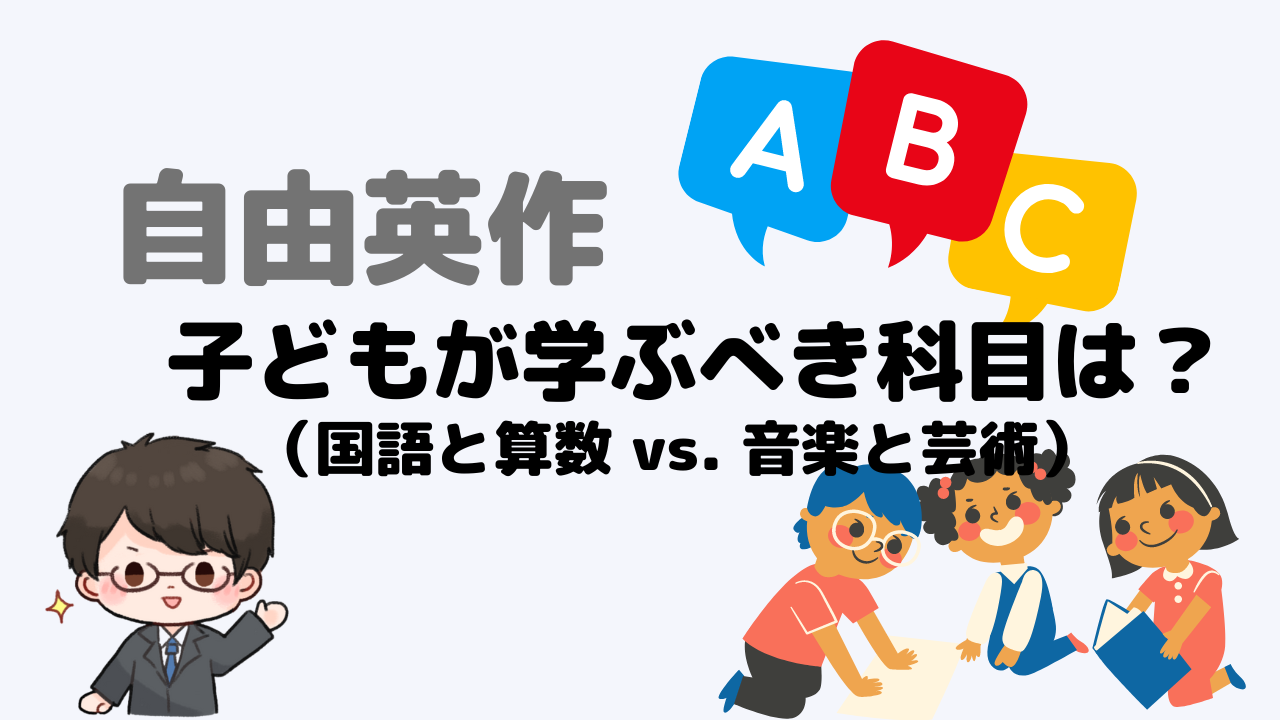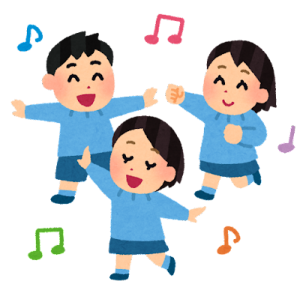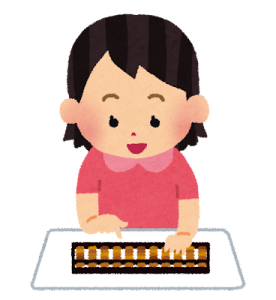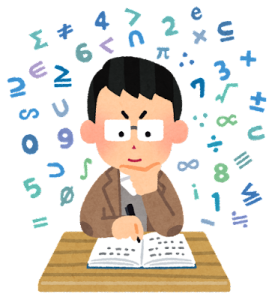こんにちわ。先生。です。
今回は2023年早稲田大学 政治経済学部の問題です。
Music and arts are of less importance for a child’s education than math and languages.
2023 早稲田大学 政治経済学部
今回は子どもの教育に関する問題です。
とても書きにくい問題でした。だらだら書いていたら解答例4みたいな感じになってしまったので、短くまとめるのに非常に苦労しました。
解答例1(国語と算数が大切)の理由が思いつきやすいと思います。
解答例2(音楽と芸術が大事)は、さすがに論理的な理由が書きにくいと思うので、
解答例3(音楽と芸術も大事)のほうがまとめやすいと思います。
そもそもどちらが大事か議論すること自体ナンセンスな気もするのですが、
こういう抽象的な問題は子どもの教育の目的を定義すると書きやすくなります。
子どもの教育の目的
- To enhance personal abilities: Education should help children maximize their potential and develop the skills they need for self-actualization. (個人の能力を向上させること:子どもたちは、自己実現を達成するための能力を引き出すことができるように、教育を受けるべきである)
- To acquire necessary skills as a member of society: Education should teach children fundamental skills such as reading, writing, and math that they will need as adults to navigate the world around them. (社会人として必要なスキルを身につけること:読み書きや計算などの基本的なスキルを身につけることが、将来、子どもたちが社会で生きていく上で必要不可欠である)
- To understand society and the world: Education should help children gain a deep understanding of society and the world, so that they can become responsible and informed citizens. (社会や世界を理解すること:子どもたちは、社会や世界を深く理解することができるように、教育を受けることが重要。そうすれば、自分自身が社会や世界を変える一員となることができる)
- To promote healthy physical and emotional development: Education should foster healthy physical activity and emotional well-being, which are essential for children to lead happy and fulfilling lives. (健全な心身の発達を促進すること:教育は、身体的な活動や精神的なケアを通じて、子どもたちが健康で幸せな人生を送るための支援を行うべきである。)
- To cultivate a passion for self-actualization: Education should help children find their passions and interests, and provide them with the skills and knowledge they need to succeed in those areas. (自己実現のための情熱を育てること:教育は、子どもたちが自分自身の情熱や好きなことを見つけ、その分野で成功するために必要なスキルや知識を身につける手助けをするべきである)
「国語と算数 のほうが音楽と芸術より大切な理由」
- 国語と算数は基礎的な学習領域であり、社会的に必要不可欠なスキルを身につけることができる。
- 国語と算数は将来的な進路において重要な役割を果たす。多くの高等教育機関や企業は、応募者の国語力や数学力を重視する。
- 国語と算数は、他の科目の理解にもつながる。例えば、理科や社会科学では、数学や言語能力が必要。
- 国語と算数は、日常生活でも必要とされるスキルであり、様々な問題解決や意思決定に役立つ。
- 音楽や芸術は、嗜好性のある分野であり、個人の好みや才能に左右される。一方、国語と算数は、普遍的なスキルであり、誰にでも必要な能力である。
- 国語と算数は、学習に必要な基礎的な語彙や数学的概念を身につけることができる。これは、将来的に学ぶ科目の理解力を高めるために必要不可欠である。
音楽と芸術のほうが国語と算数より大切な理由
- 音楽や芸術は、感性や創造性を育むことができ、子どもたちの豊かな人間性を育むことができる。
- 音楽や芸術は、文化的な背景や歴史を学ぶことができ、子どもたちの多様な価値観を尊重することができる。
- 音楽や芸術は、ストレスや不安を解消することができ、心身の健康に良い影響を与えることができる。
- 音楽や芸術は、創造的な思考力や想像力を養うことができ、将来的な社会に貢献する人材を育成することができる。
- 音楽や芸術は、子どもたちが興味を持って学び、自己表現や自己肯定感を高めることができる。
- 国語や算数だけでなく、音楽や芸術も含めた多角的な学習が、子どもたちの総合的な能力を向上させることができる。
解答例
解答例1(国語と算数が大切)
I believe math and languages are more crucial for a child’s education than music and arts. While music and arts can enhance creativity, self-expression, and social skills, they are not as critical for academic and professional success as math and languages. Math develops problem-solving, critical thinking, and logical reasoning skills, which are essential in fields like engineering, finance, and computer science. Language is fundamental for communication, understanding different cultures, and self-expression, which is vital for any career. In contrast, music and art skills are often not transferable to other fields, limiting their usefulness. Although it’s vital to expose children to a variety of subjects, math and languages should be prioritized to provide them with the necessary skills for academic and professional success.(122words)
私は、子供の教育にとって、音楽や芸術よりも数学や言語の方がより重要だと考えています。音楽や芸術は、創造性や自己表現力、社会性を高めることができますが、学業や仕事での成功には、数学や言語ほど重要ではありません。数学は、問題解決能力、批判的思考、論理的推理力を養い、工学、金融、コンピューターサイエンスなどの分野で不可欠なものです。言語は、コミュニケーション、異文化理解、自己表現の基礎となるもので、あらゆるキャリアに不可欠です。一方、音楽や美術のスキルは、他の分野に転用できないことが多いため、その有用性は限定的です。子どもたちが様々な教科に触れることは重要ですが、学業や仕事で成功するために必要なスキルを身につけるには、数学と言語を優先させるべきです。
- crucial: 重要な
- education: 教育
- enhance: 向上させる
- creativity: 創造性
- self-expression: 自己表現
- social skills: 社交スキル
- academic: 学術的
- professional: 職業的
- math: 数学
- problem-solving: 問題解決
- critical thinking: 批判的思考
- logical reasoning: 論理的推論
- essential: 不可欠な
- engineering: 工学
- finance: 財務
- computer science: コンピュータサイエンス
- language: 言語
- fundamental: 基本的な
- communication: コミュニケーション
- understanding: 理解
- different cultures: 異なる文化
- vital: 不可欠な
- variety: 多様性
- prioritize: 優先する
- academic and professional success: 学術的、職業的成功
解答例2(音楽と芸術が大事)
I think that music and arts are more important for a child’s education than math and languages. While math and languages are undoubtedly critical for a child’s cognitive development and future success, music and arts offer unique benefits that should not be overlooked. Exposure to music and art can help children develop their creativity, imagination, and critical thinking skills. Additionally, learning an instrument or practicing a form of art can develop discipline, patience, and perseverance, qualities that are necessary in any field. Music and art education also offer opportunities for socialization, team building, and emotional expression. Therefore, music and arts education should be given the same level of importance as math and language education. By providing children with a well-rounded education that includes music and arts, we can help them develop into well-rounded individuals who are capable of achieving their full potential.
私は、子供の教育にとって、数学や語学よりも音楽や芸術の方が重要だと思います。数学や語学が子どもの認知能力の発達や将来の成功に不可欠であることは間違いありませんが、音楽や芸術には見過ごすことのできない独自の利点があります。音楽や芸術に触れることは、子どもの創造力、想像力、批判的思考力を伸ばすのに役立ちます。さらに、楽器を習ったり、芸術の練習をしたりすることで、どの分野でも必要とされる規律、忍耐力、忍耐強さを身につけることができます。また、音楽と芸術の教育は、社会化、チームビルディング、感情表現の機会も提供します。したがって、音楽・美術教育は、算数や言語教育と同じレベルで重要視されるべきです。音楽と芸術を含む総合的な教育を子どもたちに提供することで、子どもたちが自分の可能性を最大限に発揮できる豊かな人間に成長することができるのです。
- more important: より重要
- cognitive development: 認知的発達
- future success: 将来の成功
- unique benefits: 独自のメリット
- overlook: 軽視する
- creativity: 創造性
- imagination: 想像力
- critical thinking skills: 批判的思考力
- learning an instrument: 楽器の演奏を学ぶ
- practice a form of art: ある種の芸術を練習する
- discipline: 訓練
- patience: 忍耐力
- perseverance: 粘り強さ
- necessary: 必要な
- any field: どの分野でも
- socialization: 社交性の育成
- team building: チームを作る
- emotional expression: 感情表現
- level of importance: 重要度のレベル
- well-rounded education: 全面的な教育
- capable of: ~する能力がある
- achieve their full potential: 全力を発揮する
解答例3(音楽と芸術も大切)
I think that music and arts are just as important for a child’s education as math and languages. While math and languages are critical for cognitive development and future success, music and arts offer unique benefits that should not be underestimated. Music education can develop hand-eye coordination, creativity, and discipline, which are useful in many areas of life. Similarly, exposure to different forms of art can help children develop critical thinking, empathy, and problem-solving skills. These are vital abilities in today’s world, which requires a range of approaches to address complex issues. Furthermore, music and art education can enhance a child’s social and emotional development as they learn to work in groups and express themselves confidently. Therefore, music and art education should be given the same level of importance as math and language education.(134words)
音楽と芸術は、子供の教育にとって、算数や言語と同じくらい重要だと思います。算数や国語は認知機能の発達や将来の成功に不可欠ですが、音楽や芸術には過小評価してはいけない独自の利点があります。音楽教育は、手と目の協調性、創造性、規律を養うことができ、これらは人生の多くの分野で役立ちます。同様に、さまざまな形の芸術に触れることで、子どもたちは批判的思考、共感力、問題解決能力を身につけることができます。これらは、複雑な問題に対処するために様々なアプローチが必要とされる現代社会では欠かせない能力です。さらに、音楽と芸術の教育は、子どもたちが集団で行動し、自信を持って自分を表現することを学ぶことで、社会性と情緒の発達を高めることができます。したがって、音楽・芸術教育は、算数や言語教育と同じレベルで重要視されるべきです。
- just as important: 同じくらい重要
- cognitive development: 認知的発達
- future success: 将来の成功
- unique benefits: 独自のメリット
- underestimate: 過小評価する
- hand-eye coordination: 手と目の協調性
- creativity: 創造性
- discipline: 訓練
- exposure: 触れ合い
- critical thinking: 批判的思考
- empathy: 共感
- problem-solving skills: 問題解決スキル
- vital: 不可欠な
- complex issues: 複雑な問題
- social and emotional development: 社会的・感情的発達
- work in group: グループで働く、作業する
- express themselves confidently: 自信を持って自己表現する
- level of importance: 重要度のレベル
- music and arts education: 音楽・美術教育
- math and language education: 数学・言語教育
解答例 (参考程度に)
要素を書き尽くすとこんな感じの答案になるでしょうか。もちろん、本番ではこれだけの分量を書くスペースはないので、あくまで参考程度にご覧ください。
The role of music and arts in a child’s education has been a topic of debate for years. Some argue that these subjects are just as important as math and languagess, while others believe they are of less significance. This essay will argue that math and languages are more important for a child’s education than music and arts.
Firstly, math and languages are essential subjects for a child’s cognitive development. Math helps to develop critical thinking, problem-solving, and logical reasoning skills. These skills are necessary for success in various fields, such as engineering, finance, and computer science. Languages, on the other hand, is fundamental for communication, understanding different cultures, and expressing oneself. Without proficiency in these subjects, a child’s educational and career prospects can be limited.
Secondly, math and languages are subjects that are emphasized throughout the education system, from primary school to university. The curriculum is designed to develop these skills progressively, building upon previous knowledge and introducing new concepts as the child progresses through the different levels of education. This structured approach ensures that the child has a solid foundation in these subjects, which will benefit them in their academic and professional lives.
In contrast, music and arts are often considered optional subjects that are not emphasized to the same extent. While they can provide many benefits, such as enhancing creativity, promoting self-expression, and improving social skills, these subjects are not as critical for a child’s educational and career success as math and languages. Furthermore, the skills learned in music and arts are often not transferable to other fields, limiting their usefulness outside of these subjects.
Finally, it is worth noting that there are many opportunities outside of the education system to pursue music and arts. Children can take private lessons or join extracurricular activities to develop their skills and interests in these areas. While it is important to expose children to a wide range of subjects, including music and arts, it is not necessary to prioritize these subjects over math and languages.
In conclusion, while music and arts are valuable subjects that can provide many benefits to a child’s development, they are of less importance for a child’s education than math and languages. The emphasis on math and languages in the education system is due to their essential role in a child’s cognitive development and their transferability to other fields. Therefore, parents and educators should prioritize math and languages education to provide children with the necessary skills for academic and professional success.
(415words)
子供の教育における音楽と芸術の役割は、何年も前から議論されてきました。これらの科目は算数や言語と同じくらい重要であると主張する人もいれば、重要性が低いと考える人もいます。このエッセイでは、数学や国語は音楽や芸術よりも子供の教育にとって重要であると主張します。
まず、算数と言語は子供の認知能力の発達に不可欠な科目です。数学は、批判的思考、問題解決、論理的推論のスキルを身につけるのに役立ちます。これらのスキルは、工学、金融、コンピューターサイエンスなど、さまざまな分野で成功するために必要です。一方、言語は、コミュニケーション、異文化理解、自己表現の基礎となるものです。これらの教科に精通していないと、子供の教育やキャリアの可能性が制限される可能性があります。
次に、数学と言語は、小学校から大学まで、教育システム全体を通じて重視される科目です。カリキュラムは、これらのスキルを段階的に伸ばすように設計されており、子どもがさまざまな教育レベルに進むにつれて、これまでの知識を基に、新しい概念を導入していきます。このような体系的なアプローチにより、子どもはこれらの科目でしっかりとした基礎を身につけることができ、学業や職業生活において有益なものとなります。
一方、音楽や芸術は選択科目とされ、それほど重視されないことが多いようです。創造性を高め、自己表現を促進し、社会性を向上させるなど、多くのメリットをもたらしますが、これらの科目は算数や国語ほど、子どもの教育や職業上の成功に不可欠ではありません。さらに、音楽や芸術で学んだスキルは他の分野には転用できないことが多く、これらの科目以外での有用性は限定的であります。
最後に、教育システムの外にも音楽や芸術を追求する機会がたくさんあることは注目に値します。子どもたちは、個人レッスンを受けたり、課外活動に参加したりして、これらの分野のスキルや興味を高めることができます。音楽や芸術を含む幅広い教科に触れさせることは重要ですが、数学や国語よりもこれらの教科を優先させる必要はないでしょう。
結論として、音楽や芸術は子どもの成長に多くの恩恵をもたらす貴重な科目であるが、子どもの教育にとって、算数や国語よりも重要度は低い。教育システムにおいて算数と言語が重視されるのは、子供の認知発達に不可欠な役割を果たし、他の分野への転用が可能だからです。したがって、親や教育者は、学業や仕事での成功に必要なスキルを子どもに与えるために、算数や言語の教育を優先させるべきです。
- role: 役割
- in a child’s education: 子供の教育において
- a topic of debate: 議論の的
- for years: 数年間にわたり
- just as important as: 同じくらい重要である
- of less significance: より重要性が低い
- argue: 主張する
- essential subjects: 必須科目
- cognitive development: 認知発達
- critical thinking: 批判的思考
- problem-solving: 問題解決
- logical reasoning: 論理的推論
- necessary for success: 成功するために必要な
- various fields: さまざまな分野
- such as: 例えば
- engineering: 工学
- finance: 財務
- computer science: コンピューターサイエンス
- fundamental for: 基本的な
- communication: コミュニケーション
- understand different cultures: 異なる文化を理解する
- express oneself: 自己表現する
- proficiency:上達
- a child’s educational and career prospects: 子供の教育的、職業的展望
- can be limited: 制限される可能性がある
- emphasize throughout: すべての段階で重視される
- the education system: 教育システム
- from primary school to university: 小学校から大学まで
- the curriculum: カリキュラム
- progressively: 徐々に
- previous knowledge: 前提知識
- introducing new concepts: 新しい概念を導入する
- as the child progresses: 子供が成長するにつれて
- through the different levels of education: 異なる教育レベルを通して
- structured approach: 構造化されたアプローチ
- solid foundation: 堅固な基盤
- benefit: 利益をもたらす
- optional subjects: 選択科目
- to the same extent: 同じ程度に
まとめ
子どもはやりたいことをやるのが一番良いと思います。個人的には、それを阻害しない教育が理想です。
高校教師なんてやっていると、学生にとって不毛なことが多々あって・・・(愚痴)😥
作ってほしい自由英作の問題があれば、コメントください。
それ以外の質問もOKです。












コメント